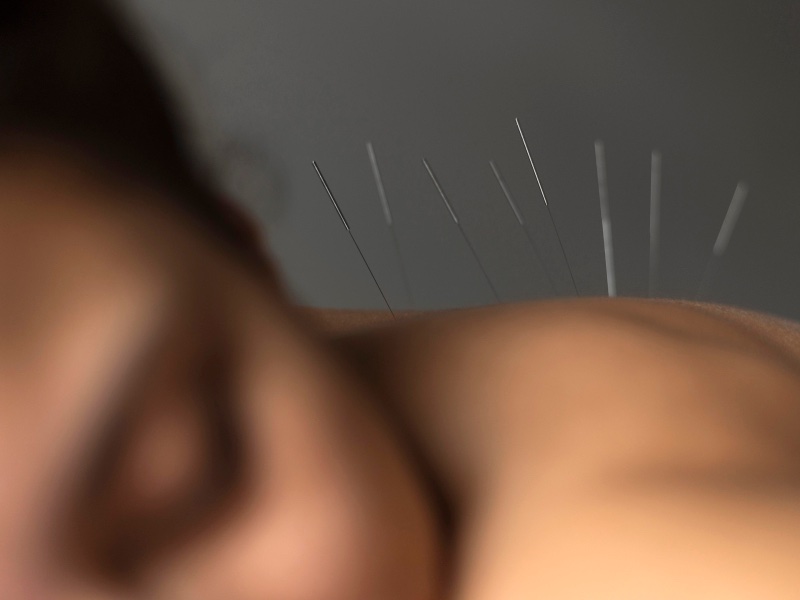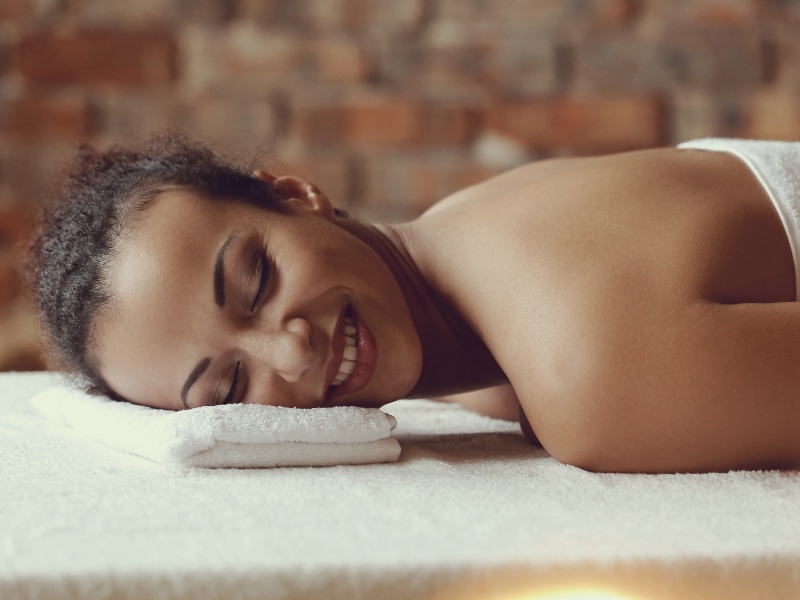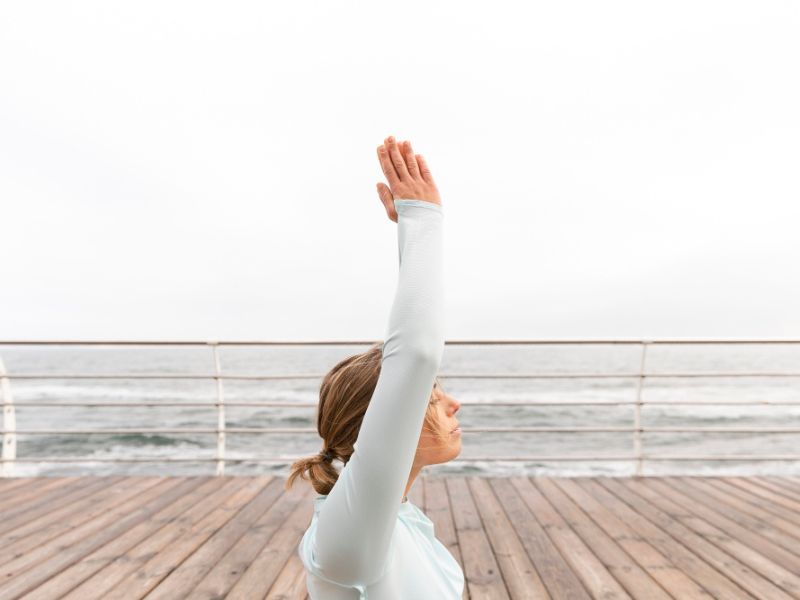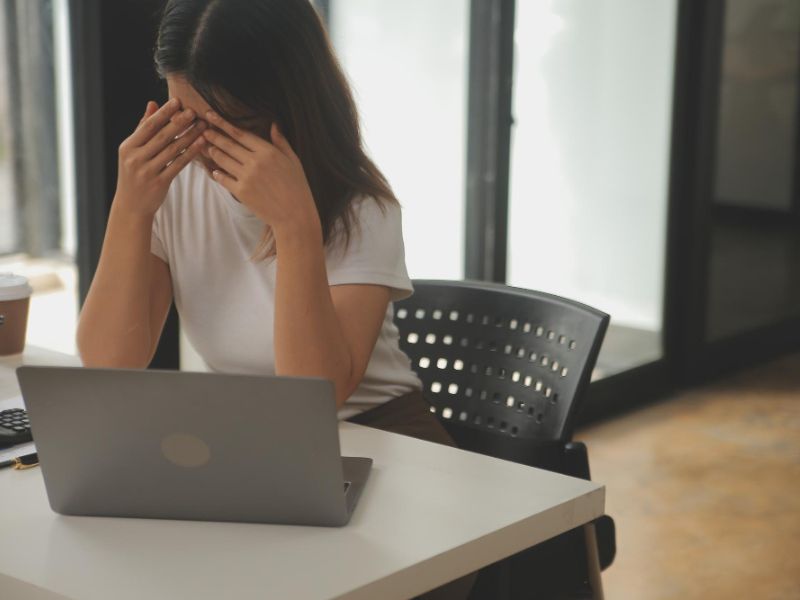
Getting to the point of how acupuncture can treat so much more than just pain.
Acupuncturists Martine and Natalie Vegoda both left corporate roles over 15 years ago to retrain in traditional Chinese Acupuncture, going on to co-found London’s The Heathlands Clinic.
And now, the sisters (who work in an unusual but highly effective way of treating their patients together) are now committed to helping ‘demystify’ the role and benefits of the ancient practice, highlighting how acupuncture can work as a wonderful adjunct to Western medicine, backed by science to work as a stand-alone treatment.
Indeed, many people are still unaware that Traditional Chinese Medicine (TCM) evidence base is growing and suggest that it can help mental health and well-being. As Martine Vegoda MBAcC explains, “a high percentage of cases we treat in our clinic fall in the spectrum of mental health issues. We have seen a huge rise since the pandemic.”
A survey carried out amongst members of the British Acupuncture Council (BAcC) as part of its recent ‘Getting to the Point of It’ campaign, showed that 72% of practitioners said they had seen an increase in patients seeking help for mental health issues due to the post-Covid NHS backlog.
She continues; “Global prevalence of anxiety is on the rise. Anxiety is a complex condition and there are many related disorders, symptoms and physical manifestations that vary considerably from person to person. The mental and physical symptoms can be chronic and result in sufferers having very poor quality of life1.”
TCA can be very effective in this area. Practitioners of TCA treat the whole person in totality rather than their specific symptoms in isolation. For that reason, each patient will likely come out with a different Traditional Chinese Medicine (TCM) diagnosis and acupuncture treatment plan. There really is no ‘one size fits all’ approach.
Natalie Vegoda MBAcC says; “We have success with patients all the time for help with low mood, physical pain, feelings of anxiety, stress and fear, IBS flare-ups, problems sleeping, stress headaches and so much more. In my opinion, traditional acupuncture – and the diagnostic theory of TCM which forms its backbone – has opened a way for practitioners in this field to really help people and enrich their lives.
“We often work alongside medical professionals with patients undergoing talking therapies and pharmacological treatments. Pharmacological medications such as benzodiazepines, selective-serotonin re-uptake inhibitors (SSRI), antidepressants and /or talking therapies such as CBT can have a lot to offer in helping sufferers of anxiety tackle their condition.
“These options can be life-changing but there need not be an either/or scenario in the best course of treatment for patients. Our acupuncture treatments create emotional and physical balance in the body which only serves to support other treatments and accelerate their progression by creating a more responsive and harmonious baseline for patients to build on.”
Studies have shown, TCA may help with anxiety because it stimulates the body’s production of endogenous opioids that kick-start the parasympathetic nervous system (PNS) to initiate relaxation.
Essentially, TCA treatments ‘down regulate’ the opposing sympathetic nervous system responsible for what is termed the ‘fight or flight’ response that is so heightened in states of anxiety.
Treatments work by stimulating the PNS to slow heart and breathing rates, lower blood pressure and divert energy back to digestion which would have been temporarily suppressed during heightened episodes of anxiety2. Hence why TCA is also so effective in treating IBS symptom flare-ups. Stress and IBS often go hand in hand3,4
Martine adds; “The wonderful thing about TCA is that it does not discriminate with its healing. We are able to help men and women of all ages. Some of the patients we treat may be stressed to the hilt A-level students or late teens starting university, unsure if they have made the right decisions with their degree choices.
“We see menopausal women looking after their families, working full-time jobs and trying to hold it all together whilst navigating all the discomforts and changes going on within their bodies. We treat the elderly who can be in constant pain and can’t sleep, and men who are subconsciously suppressing all their stress so that it manifests with skin eruptions.
“Using TCM theory we can create personalised treatment plans that can lower their stress and anxiety and decrease their pain.
“In the simplest of terms, treatments stimulate natural endorphin release; their body’s own feel-good chemicals5. I’ll never forget one patient, after treatment, described it as like feeling we had pulled the string of their balloon back down to earth again and they could finally take a deep breath.”
Currently NICE (National Institute for Health & Care Excellence) recommends acupuncture for the treatment of primary chronic pain, tension-type headaches, and migraines. But acupuncture is also used by those with other musculoskeletal pain, digestive and women’s health issues and mental health conditions, with clinical evidence of its effectiveness emerging all the time.
Always ensure that your practitioner is a fully qualified member of The British Acupuncture Council (BAcC), accredited by the Professional Standards Authority (PSA, and trained to degree level in TCM. Patients will not get the same quality or diversity of treatment benefits from someone who has only completed a short course in acupuncture.
To find a local acupuncturist and qualified BAcC member please go to: https://acupuncture.org.uk/find-an-acupuncturist/

References:
[1] Wichen HU. Generalized anxiety disorder: Prevalence, burden, and cost to society. Depress Anxiety. 2002;16(4):162–171 [PubMed] [Google Scholar]
[2] Li, Q. Q., Shi, G. X., Xu, Q., Wang, J., Liu, C. Z., & Wang, L. P. (2013). Acupuncture effect and central autonomic regulation. Evidence-based complementary and alternative medicine: eCAM, 2013, 267959. https://doi.org/10.1155/2013/267959
[3] World Journal of Gastroenterology
Effectiveness of acupuncture to treat irritable bowel syndrome: A meta-analysis Guan-Qun Chao and Shuo Zhang
[4 ]Evidenced based acupuncture Acupuncture for the Treatment of Diarrhoea-Predominant Irritable Bowel Syndrome Jan 5, 2023 | Acupuncture, Digestive system and metabolism, EBA Forum, EBA Forum NEW, IBS, Safety
[5] Han JS. Acupuncture and endorphins. Neurosci Lett. 2004 May 6;361(1-3):258-61. doi: 10.1016/j.neulet.2003.12.019. PMID: 15135942








